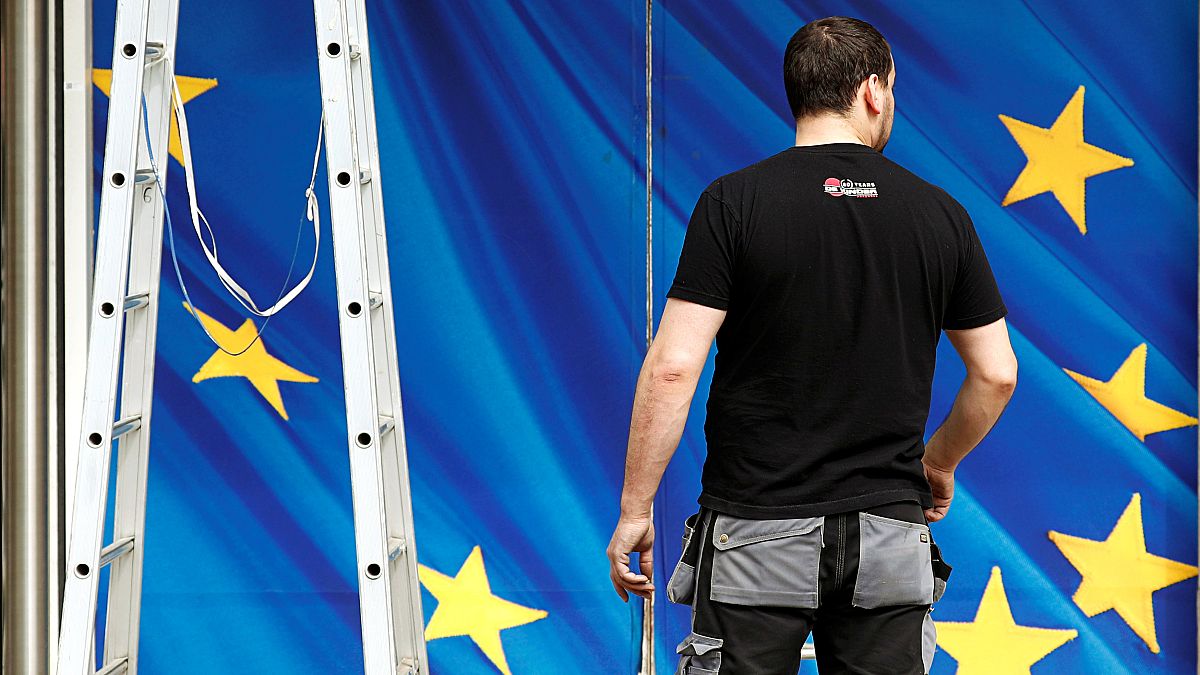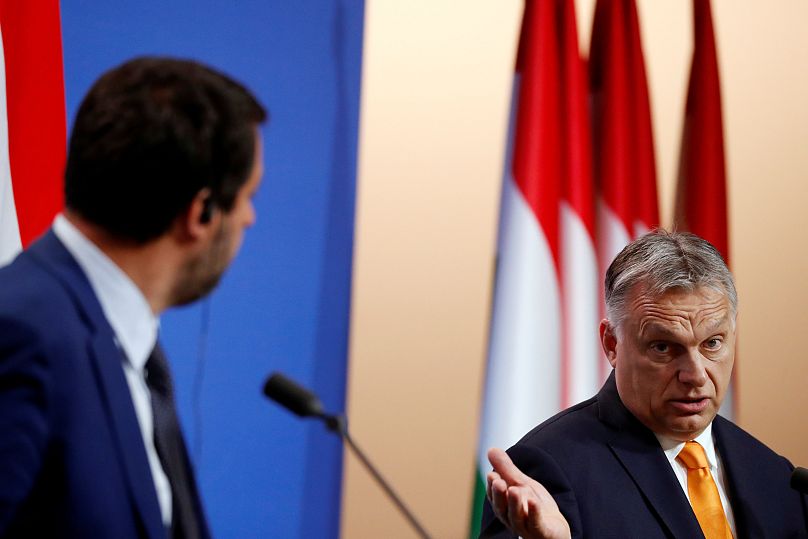This week we look at the smaller parties that could tip the scales in the new parliament and examine the role of the Eurosceptics' favourite target, the EU Commission.
Welcome to our weekly round-up of EU elections coverage. With three weeks until voters go to the polls, we'll tell you all you need to know about how the elections work and the role of the parliament, as well as sharing the latest stories.
This week we look at the smaller parties that could tip the scales in the new parliament and examine the role of the Eurosceptics' favourite target, the EU Commission.
Plus, Salvini and Orban talk tactics, Spain bans Catalan exiles from running as candidates and nearly three-quarters of respondents to a European survey cite the environment as their priority when it comes to casting their votes.
The wildcards
While the two biggest parliamentary groups are forecast to scoop the most seats in the elections, it's the smaller – but popular – ones that could shake up which MEPs stroll into Brussels, according to the latest projections from Europe Elects.
The wildcards are British MEP Nigel Farage's Brexit Party, Italy's 5-Star Movement and French President Emmanuel Macron's LREM, which has been expected to join the liberal ALDE party but has yet to formally join the group.
What does the European Commission do?
The fact that members of the European Commission are not directly elected by the public has long made it the principal subject, among the EU's institutions, of Eurosceptic accusations of a "democratic deficit". Here we explain what the Commission does, its relationship to the European Parliament in terms of legislation – and what its limits are.
All right on the night
Italian Deputy Prime Minister Matteo Salvini, leader of the far-right League party, met Hungarian leader Viktor Orban on Thursday for talks dominated by immigration and political alliances. Euronews' Giorgia Orlandi in Rome said the visit was "part of Salvini's campaign to build his pan-European nationalist alliance". Orban said Europe needs to be governed by those opposed to immigration and faulted the European Popular Party for being "unreceptive" to right-wing parties.
Catalan ban
The Spanish board of elections has banned former Catalan president Carles Puigdemont and his advisers Antoni Comín and Clara Ponsatí from running in the elections. Monday's decision was based on appeals filed by the conservative Popular Party and the centre-right Ciudadanos, who said since the trio are not residing in Spain and not registered as Spanish citizens living abroad, they are not eligible. Puigdemont and Comín are exiled in Belgium, while Ponsatí lives in Scotland.
Climate change.org
The main focus of the next European Parliament should be on protecting the environment, according to a survey of more than 100,000 people conducted by Change.org. Seventy-two per cent of respondents said the health of the planet was the most important issue. Migration and employment were far behind, attracting support from 38% and 33% respectively. Change.org, a platform hosting online campaigns, polled 135,431 of its users in Poland, Spain, Italy, France and Germany.
And in news from elsewhere...
Politico: Commission candidates target dangerous enemy – national capitals
Forbes: Three initiatives that will make you vote in the next European elections

